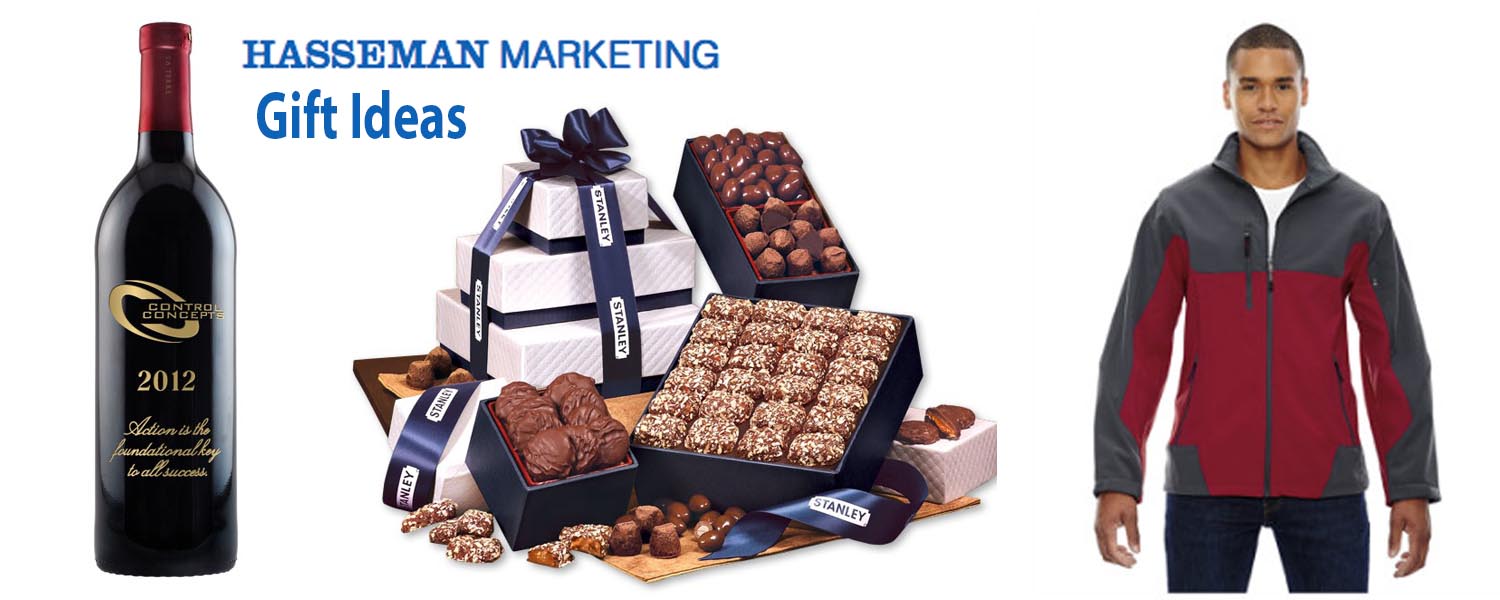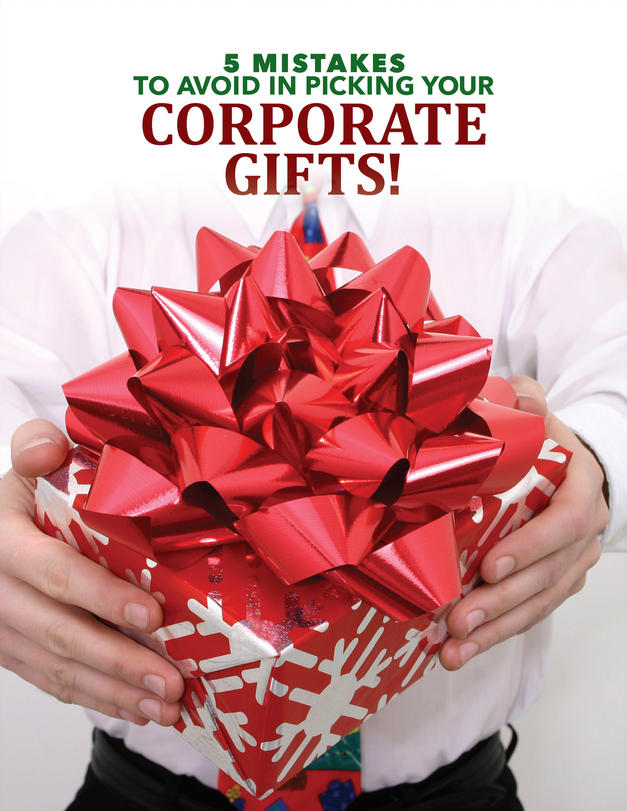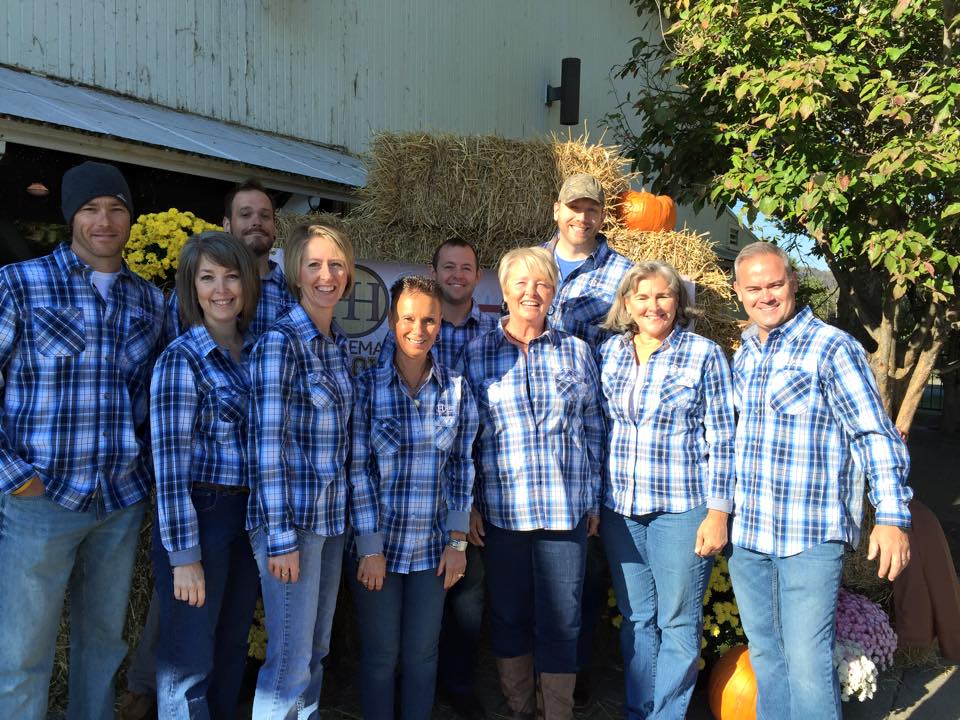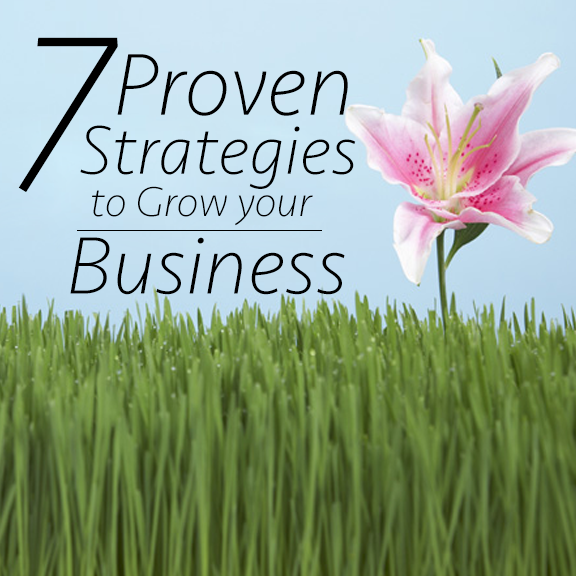by Kirby Hasseman
 In case you haven’t looked at the calendar, it’s the 4th quarter. That means it’s the perfect time to say “thank you” to customers, sales team and employees. Entrepreneurs know…but what do you get them so you can really make an impression? Let’s talk about a few things that you might not have considered…but you should! Soft Shell Jacket: If you want to outfit your team in style…and keep them warm at the same time…this jacket is perfect! You can get this style in a variety of colors and make it a gift that keeps on giving! Check this one out here! EvryBox Charger Speaker: This one is really cool! The EVRYBOX is a bluetooth speaker AND a phone charger in one. You have the ability to imprint in full color on the top of the piece and really make an impact on the desk of your best clients. Learn more here. Custom Etched Bottle of Wine: This is a way to really leave an impression. These Custom Etched Bottles of Wine not only give a reason to celebrate, but also leaves a really nice momento as well. Don’t want to blend in? This will help. Tower of Sweets: If you have a diverse group of people that you need to thank, or you have a group in one office to recognize, food gifts can be perfect! They are naturally share-able and (when done right) can bring that warm and fuzzy feeling you want when showing gratitude. This is just one example (and it’s awesome), but contact us if you want to other food gift ideas. Prism Padfolio: The great thing about a Padfolio is that it is functional, long lasting and valued! In addition, the perceived value is high on these. In other words, clients will actually think you spent more than you did! That’s a good thing! Here is a great gift option for under $10…check it out! Bonus Low Cost Item: “Okay,” you might be saying. “But do you have any gift ideas that are under a buck?” Yes! Here is an item that 40% of the population is addicted to…but it is legal! If you have a budget that is super tight…consider Lip Balm! Want more Holiday gift ideas? No worries. Contact us and we will be glad to help!
In case you haven’t looked at the calendar, it’s the 4th quarter. That means it’s the perfect time to say “thank you” to customers, sales team and employees. Entrepreneurs know…but what do you get them so you can really make an impression? Let’s talk about a few things that you might not have considered…but you should! Soft Shell Jacket: If you want to outfit your team in style…and keep them warm at the same time…this jacket is perfect! You can get this style in a variety of colors and make it a gift that keeps on giving! Check this one out here! EvryBox Charger Speaker: This one is really cool! The EVRYBOX is a bluetooth speaker AND a phone charger in one. You have the ability to imprint in full color on the top of the piece and really make an impact on the desk of your best clients. Learn more here. Custom Etched Bottle of Wine: This is a way to really leave an impression. These Custom Etched Bottles of Wine not only give a reason to celebrate, but also leaves a really nice momento as well. Don’t want to blend in? This will help. Tower of Sweets: If you have a diverse group of people that you need to thank, or you have a group in one office to recognize, food gifts can be perfect! They are naturally share-able and (when done right) can bring that warm and fuzzy feeling you want when showing gratitude. This is just one example (and it’s awesome), but contact us if you want to other food gift ideas. Prism Padfolio: The great thing about a Padfolio is that it is functional, long lasting and valued! In addition, the perceived value is high on these. In other words, clients will actually think you spent more than you did! That’s a good thing! Here is a great gift option for under $10…check it out! Bonus Low Cost Item: “Okay,” you might be saying. “But do you have any gift ideas that are under a buck?” Yes! Here is an item that 40% of the population is addicted to…but it is legal! If you have a budget that is super tight…consider Lip Balm! Want more Holiday gift ideas? No worries. Contact us and we will be glad to help!
by Kirby Hasseman

Any business owner will tell you, we get “hit up” for donations, sponsorships, and fundraisers on a daily basis.
It’s not a complaint…just a fact.
As a matter of fact, I take pride in the impact our company gets to make on our community. But I will say, sometimes it is easy to get overwhelmed. And when that happens, it is even easier to delete the emails, throw away the letters, or ignore the brochures.
The other day though, a friend of ours stopped by the office to discuss a school fundraiser with my wife. She brought the literature herself. She kindly explained it. She asked if we wanted to participate. So we did.
Who cares?
If you are in sales, you should. In this day and age of technology and speed, it is really easy to send an email to ask for the sale. You can send a letter to explain your USP. You can post your cause to Facebook and hope that people will come running. But if you really want to be effective, face to face is still a great way to sell.
As one of my early sales trainers told me…see the people!
Make sure you never miss an update. Head to our blog to see all of our content. Or you can sign up for our VIP newsletter here.
by Kirby Hasseman
 In case you missed us, we want to catch up! The last couple of weeks have been full of travel, hustle and our Customer Appreciation Show! So we wanted to catch you up on the content we were able to crank out in the midst of all of that. So let’s get to it! Customer Show: We will have more on this soon, but just wanted to include a quick shout out to suppliers, employees, and customers that helped make this year’s show a success. What a great group we had. Thanks to all! Think For Yourself: With social media, it seems like its even easier to blindly follow. Here are 3 tips for thinking for yourself! DON’T Go With The Flow: We have all heard the saying “Go with the flow.” But Jeff Wickerham spends a little time explaining why you shouldn’t follow that advice. Check that out here. Weekly Word: Meeting customer expectations is just the basic. You have to do that today. But if you want to really create a strong company and loyal customers, you have to follow the Weekly Word…and Over-Deliver. Three R’s Of Business: You have likely heard of the Three R’s in School, right? Well this is something just as important…but different. If you want to create a strong business that will last, you need to follow the Three R’s…and you can find those right here! Be Intentional: Most people will tell you that they have goals. But when pressed on it, many people can’t tell you EXACTLY what they are. Can you? Here is a quick blog post to help you Be More Intentional with your goals. Delivering Marketing Joy: Be one of the first to discover this gem of an episode. This time Kirby talks with Marshall Atkinson about content, mentoring and more. You will want to know about the rule of 90-9-1…and what number you are! That episode is right here! Updated Reading List: Under the list of “Keeping up the hustle,” here is the updated reading list from Kirby on his way to reading 50 books this year. He is getting close. Check it out here. So that is your content update for last week or so. What do you think? Are you keeping up your hustle?
In case you missed us, we want to catch up! The last couple of weeks have been full of travel, hustle and our Customer Appreciation Show! So we wanted to catch you up on the content we were able to crank out in the midst of all of that. So let’s get to it! Customer Show: We will have more on this soon, but just wanted to include a quick shout out to suppliers, employees, and customers that helped make this year’s show a success. What a great group we had. Thanks to all! Think For Yourself: With social media, it seems like its even easier to blindly follow. Here are 3 tips for thinking for yourself! DON’T Go With The Flow: We have all heard the saying “Go with the flow.” But Jeff Wickerham spends a little time explaining why you shouldn’t follow that advice. Check that out here. Weekly Word: Meeting customer expectations is just the basic. You have to do that today. But if you want to really create a strong company and loyal customers, you have to follow the Weekly Word…and Over-Deliver. Three R’s Of Business: You have likely heard of the Three R’s in School, right? Well this is something just as important…but different. If you want to create a strong business that will last, you need to follow the Three R’s…and you can find those right here! Be Intentional: Most people will tell you that they have goals. But when pressed on it, many people can’t tell you EXACTLY what they are. Can you? Here is a quick blog post to help you Be More Intentional with your goals. Delivering Marketing Joy: Be one of the first to discover this gem of an episode. This time Kirby talks with Marshall Atkinson about content, mentoring and more. You will want to know about the rule of 90-9-1…and what number you are! That episode is right here! Updated Reading List: Under the list of “Keeping up the hustle,” here is the updated reading list from Kirby on his way to reading 50 books this year. He is getting close. Check it out here. So that is your content update for last week or so. What do you think? Are you keeping up your hustle?
by Kirby Hasseman
 When it comes to a successful education, old timers will tell us about the 3 R’s of education. The idea is that a focus on “Readin, wRitin, and aRithmatic” would help create a good student. And though that is hopefully not the entire focus of our education system today, we know that those are the basics for success. When it comes to business, there are also the THREE “R’s” that are a great piece of any successful, long term business. We have already spent an entire blog post on one of the R’s—Retention. So let’s talk about the other Two R’s in a great business! Those are:
When it comes to a successful education, old timers will tell us about the 3 R’s of education. The idea is that a focus on “Readin, wRitin, and aRithmatic” would help create a good student. And though that is hopefully not the entire focus of our education system today, we know that those are the basics for success. When it comes to business, there are also the THREE “R’s” that are a great piece of any successful, long term business. We have already spent an entire blog post on one of the R’s—Retention. So let’s talk about the other Two R’s in a great business! Those are:
- Repeat Customers
- Referrals
All successful business owners want to have a steady stream of repeat customers that come to our door. These repeat customers are the backbone of any vibrant business. They are the “holy grail.” These customers come back again and again and (hopefully) have a loyalty to spending their time and money with us!They are also our best source for the other R—Referrals—but I will get to that in a minute. These repeat customers are so great because we have already won them. It takes a great deal of time, energy and money to capture a customer. In fact, it’s much harder to convert a non-customer into a customer, than it is to sell to a current customer. Depending on which study you believe, it costs 6 to 7 times more to capture a new customer than to sell to a current customer. It’s one of the main mistakes I think many businesses make. We spend most of our time and money on the clients that are hardest to reach! So we have a base of repeat customers. Great! Now what do we do with them? I think it’s safe to say the goal is to grow that base. But how? The first way is to get these repeat customers to come and do business with us more often! If we can increase the number of times these customers do business with us, we increase sales. Duh…right? Well in two separate studies (in 1993 and 1994 respectively) promotional products were shown to improve repeat business. Study One—Food Delivery ServiceIn this study, conducted by Southern Methodist University, 900 people were divided equally into 9 groups. These nine groups were broken down by type of customer (existing residential, new residential, and business customer) and what they received (promotional product, coupon, or nothing). The promotional products and coupons were both valued at $2. *Customers who received promotional products ordered up to 18% sooner than those who received coupons! *Customers who received promotional products also averaged up to 18% more orders than those receiving coupons. In other words, the customers that received the promotional products ordered more quickly and more often than those that received coupons…or nothing. Study Two—Dry CleanerThis study, also conducted by Southern Methodist University, tracked the activity of 300 new customers at two locations of a dry cleaner. These customers were randomly assigned one of three groups, all of who received a welcome letter. Two of these groups received, in addition to the letter, a promotional product or a coupon—both valued at $5. *Over an 8 month period, new customers that received a promotional product spent 27% more than those who received coupons, and 139% more than those who received only a welcome letter. *Promotional products recipients were 49% more likely than coupon recipients and 75% more likely than letter recipients to patronize the dry cleaner in each of the eight months studied. Again, those that received promotional products were spent more and were more regular customers than those that did not. If repeat customers are the “Holy Grail” to business success, then you need to consider how cementing that relationship with a promotional product can help you grow. ReferralsAnother huge part of any successful business is the second R…Referrals. As a business friend once told me, “The best way to get referrals is to deserve them!” That is so true! But I am going to assume that you are running a business that is worthy of referrals. Now let’s talk about how to get more of them! As I mentioned earlier, your current customer base is often the best place to look for growth in your business. It’s also the place that many business owners and marketers ignore. Let’s face it, your current client base already “gets” you. They understand what you are all about. So they can be a fantastic source of other potential customers. The problem with referrals is, no really likes to ask for them! Admit it. You don’t like asking. Most people don’t. Nearly every time I speak to a group, everyone agrees that getting referrals is a great way to grow your business. And just as consistently, most groups admit to failing to “consistently ask” for referrals. See the problem? How do we make it easier? Give a promotional gift before asking for the referral.A study done in 1993 by Baylor University shows that customers who receive a promotional product are more willing to provide referrals than those that don’t. The study was conducted with 20 Mary Kay beauty consultants, half of whom distributed a promotional gift to customers; the other 10 offered no promotional gift. The results were impressive. *Customers who received a promotional product were 14% more likely to provide leads than those that did not. *Salespeople who gave promotional products to their customers received 22% more referrals than the salespeople who did not use the promotional gift.Providing even a small promotional gift to customers will increase the likelihood that they will provide you with great referrals. Combine that with the fact that you have a business worth referring…and you have business gold! Create a Referral ProgramAre you still struggling to ask for that referral? What about creating a program that asks for you? It would go something like this: Create a flyer that could be emailed, mailed, faxed (sent via smoke signal) to your current customer base. This flyer would advertise a nice “Referral Gift.” This gift could be anything from a nice watch to a piece of luggage (use your imagination). The gift does not have to break the bank, but it does need to be nice enough to garner attention. Send the flyer letting customers know that if they provide a referral that turns into business for you, they will receive this fabulous gift. Boom.Here are some things to consider on a referral program.
- The gift needs to be nice enough to get your customer to act.
- Make the first purchase minimum enough that the proceeds from that sale will cover the cost of the item.That way you might break even on this transaction, but now you have a customer for life!
- Make it feel somehow “exclusive.”Maybe you only send it out in groups to your top 20% of clients.They are the most likely to give you the best referrals anyway!
This simple program will take “the ask” out of the referral! You have gone from asking them for a referral to giving them an opportunity for a great gift!Either way, you want to have a strong case of the Three R’s if you want a successful business. Now you know how promotional products can help you! Want more great content like this? Sign up for our VIP list! Get access to our weekly content and special deals…by simply going here! Sign up today!
by Kirby Hasseman
Let’s start with a statistic. It will really make you think.
Studies show that 69% of customers who leave you (as a customer, donor, supporter, etc.) do so because of “perceived indifference.” They will leave you because they simply don’t think you care.
Seriously, think about that. Nearly 7 out of 10 lost customers come down to the fact that you didn’t show them that you gave a crap about them.
Customer Loyalty—The Stakes are High, But It’s in Your Control
This statistic both frightens and excites me.
On one hand, it means that my customers could leave me because I have just been careless and lazy. It means that if I am not careful, my competitors could swoop in and take my revenue…just by caring more! Am I doing enough to show my customers, regularly, that I sincerely appreciate their business? Are you? The question itself seems scary.
And yet, on the other hand, it is an entirely fixable (and improvable) situation. If I am not doing enough to show them, I can fix it! It is totally within my power to do so. That’s a good thing. I don’t have to wait for some cosmic shift in the economy, or some other outside force to change. This is something I can fix all by myself. I just need to care more, and then follow through with actions to demonstrate that I care.
Create Systems to Improve Customer Loyalty
On the third hand (is that even possible?) I see this statistic about perceived indifference as an opportunity. It means that most businesses—and likely my competitors—are NOT caring enough about their current customers. That means I (and now you) can create systems that allow you to gain market share…through caring! How cool is that?
So how do we do it?
Let’s talk about two very concrete ways to ensure your customers always know you appreciate them.
Two Strategies for Customer Retention
Start a Habit of Sending Thank You Cards
It’s funny. Sometimes the things that make a big difference in your customer’s eyes are the simplest.
- Send your customers a card on their birthday.
- Send them thank you cards for their business.
- Send them a holiday card.
- Send them a Thanksgiving card.
Most people open their mail standing over the trash can because all we get are bills and junk mail. A heartfelt thank you card really stands out.
The reason most people don’t send out cards regularly is they lack a system.
Let’s face it; most of us have good intentions. But those intentions go out the window when we can’t find the right kind of card, or we can’t find a stamp, or we don’t have the person’s address.
We need to schedule a specific time each day (or week) that we send out cards. One of my favorite practices is to try to create a reason to send out at least one thank you card each day. Sometimes I send a card to thank a customer for a purchase they made. Sometimes I send one to someone who helped me. It’s a fantastic practice.
Two things will happen. First, your customers will NEVER think you don’t appreciate them. And second, you will have a better attitude about life. If you spend every day trying to find something to be thankful for—guess what—you will become more grateful. That’s not a bad side benefit for doing something to help you increase your business! Now let’s talk about how to create customer retention with promotional products.
Send Quarterly “Thank You” Gifts to your Best Customers
If you are like most businesses, 20% of your customers or clients produce 80% of your sales. It’s not a universal rule, but it is surprising how often it is true.
So those 20% are the clients you REALLY want to show that you care. So, in addition to sending them a birthday card, a Thanksgiving card, and thank you cards, you want to reach out with something extra special at least once a quarter.
Start by establishing a budget.
How much are you willing to spend over the course of a year in order to say “thank you” to these top clients? Remember, these clients are your bread and butter. This is probably not the time to go cheap. How much you can afford to spend retaining your best clients will be different for every business, but, in my experience, you don’t have to break the bank.
Figured out how much you’re able to spend per year, per top client? Now, just for argument’s sake, let’s assume this number is $100 per year. That is, you’ve determined that it’s worth it to your business to spend $100 over the course of a year to say thank you to these top clients. Divide your number by 4. This means you have $25 per quarter to create some sort of gift to give to these clients.
This is more than just a nice gesture. This promotional gift shows your appreciation for them, and it also showcases your logo, reminding them each and every time they use the gift that you are a great company to work with! The trick is to tailor the gifts to your audience.
Start a quarterly thank-you gift program and you’re now “touching” these clients 4 more times a year with a tangible, useful piece of appreciation.
A Plan for Thanking Your Best Customers with Awesome Promotional Products
How does this work? Let’s give you an example. Let’s say you are an insurance agent who has a wide variety of customers. You have business professionals, farmers, families and more.
This diverse group of customers gives you an idea of things you do and don’t want to give. So, your quarterly gifts might look like this:
Quarter 1: Roadside Safety Flashlight. This makes sense because you are not only promoting your brand, but you are showing you care about your client on the road.
Quarter 2: High-End Travel Mug and Cooler Bag. This is a cool combo because your clients might be thinking of vacations or road trips for the warmer months. Great way to remind them that you are with them through the miles and smiles!
Quarter 3: BBQ Set. At this point they will be in barbecue season with tailgating just around the corner.
Quarter 4: Executive Calendar and Tumbler. These two gifts are sure to stand out in the office and the home.
Obviously, these are just a few ideas to get you thinking. There are thousands and thousands of options. But these are some cool things that transcend generations and gender.
Streamlining the Process of Ordering Promotional Products
Also, here’s a quick tip to make this easier for you.
Call your promotional products consultant (that’s us!) and tell them your plans. We’ll help you find the perfect products that fit your budget and will be genuinely appreciated by each of your top customers. To make it even easier, consider ordering all four quarterly products at once. Have them shipped to you about a month before you need them, which allows you to spread out the cost over the year.
Pre-ordering for the whole year, “poof!” creates a reminder system for you, so you remember it’s time to say “thanks” again to your best clients. When the boxes arrive it’s time to start!
There are lots of ways to thank your clients, to kick the problem of perceived indifference to the curb, and to spread marketing joy all year round.
Get creative too and have some fun thanking your customers. You will be glad you did!
This post is an adapted excerpt from my book, Delivering Marketing Joy.
You can find all of the content we create on our blog page here. If you want to create a marketing campaign that truly hits the TARGET, check out our FREE TARGET Marketing Playbook here.







